Masquerade
2021 to Present (ongoing)
“Man is least himself when he talks in his own person. Give him a mask and he will tell the truth.”
Oscar Wilde
I am researching masks and masking, although not for the obvious contemporary reason of public health. I’m fascinated by masks as expression of human psychological expression. Masks portray the human “life drama” in all of its aspects.
Masks belong to the tradition of drama (theater) and storytelling. The mask has a dual nature: it looks both in and out. Masks stand between the real self and the world. Words associated with masks include: veils, lies, covers, protections, shields. Looking deeper, the mask — and therefore the art of masking — makes us question: What is real? What is artifice? What is hidden and, likewise, what is revealed?
The etymology of “mask” traces back to Arabic. The word maskhara means “to transform into an animal or monster.” In modern English language usage, we refer to “saving face”, meaning to save oneself from something embarrassing or shameful. The mask therefore protects against human vulnerability.
Are we more ourselves when we wear a mask or when we remove it? Does the mask embolden or repress? Or, more likely, is the answer to each of these questions, Yes?
At first, I imagined different Jungian archetypes personified in the mask wearing, and started down a road of what I thought would be a fun project. But I find as I push on with this work that I am interested in something much deeper and much more foundational: the masks through which we enter and live in the world.

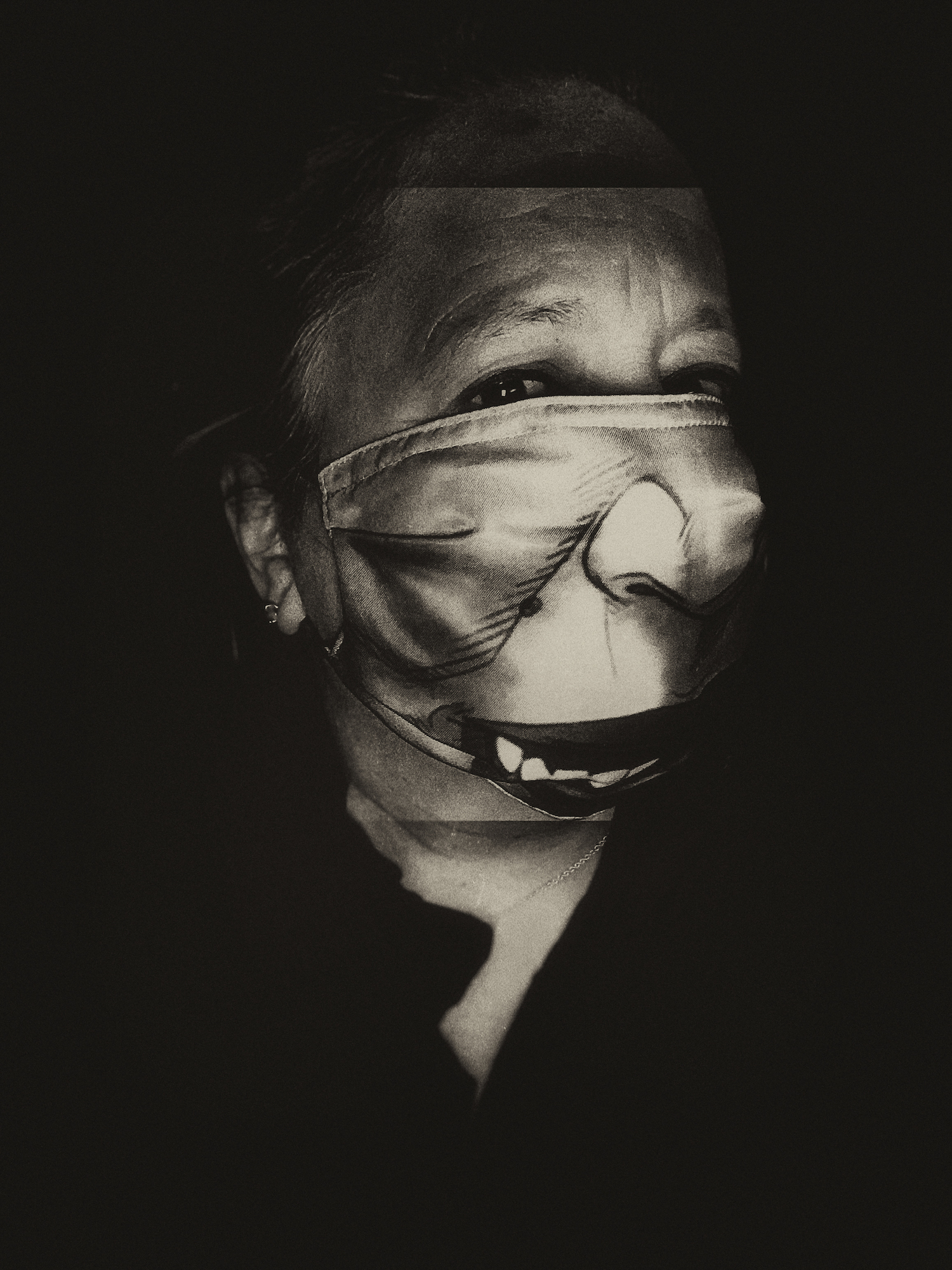
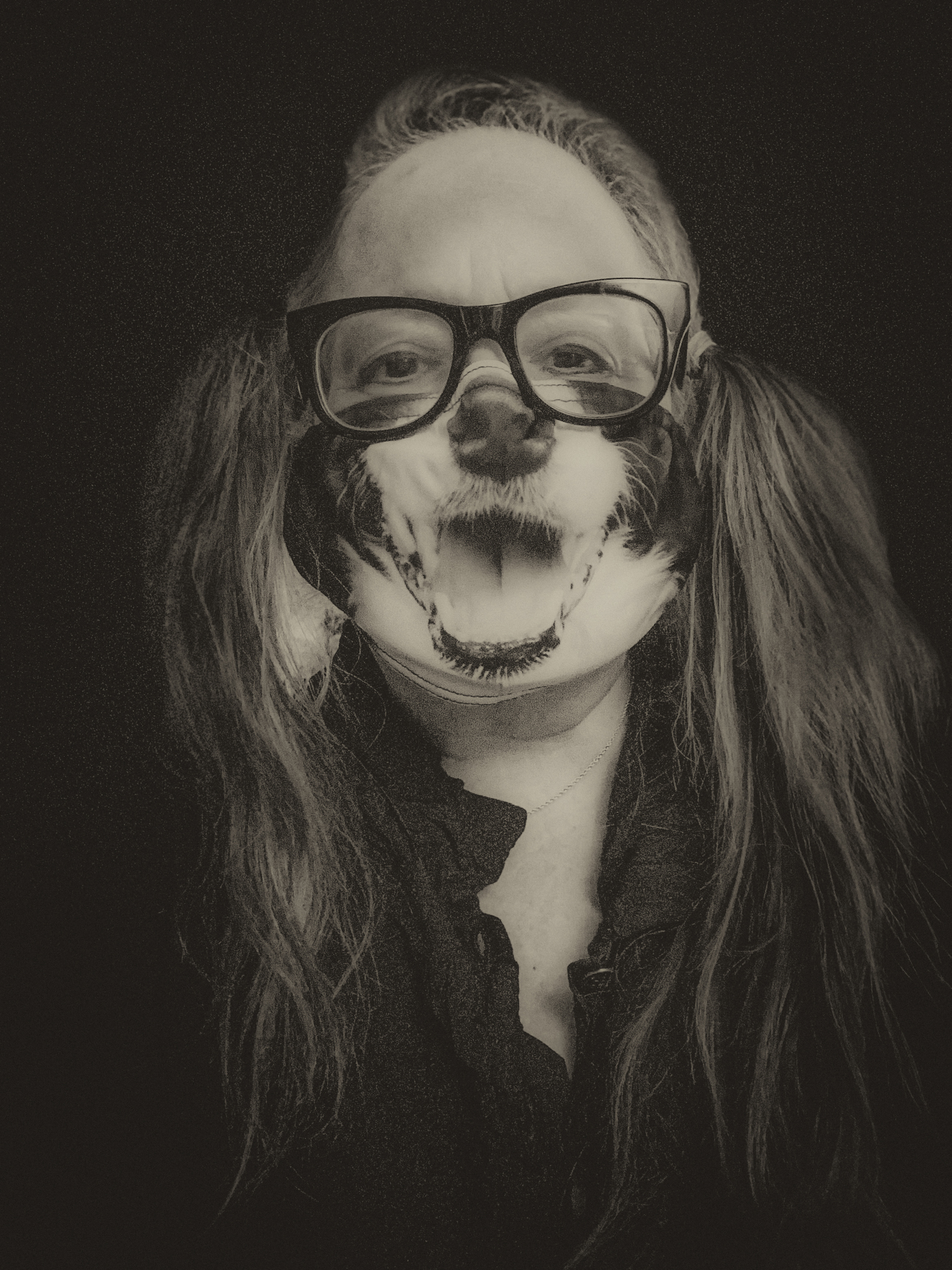
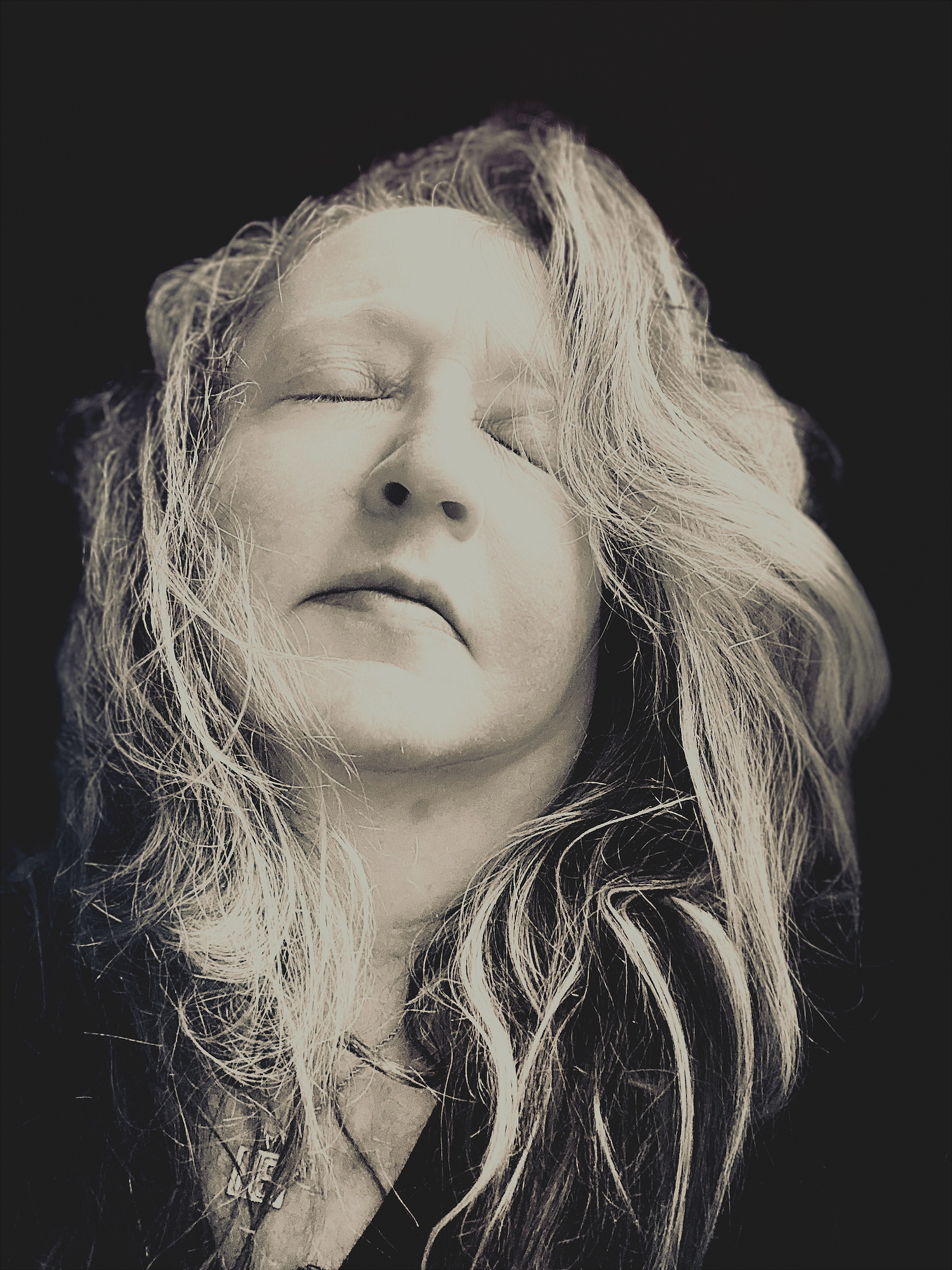
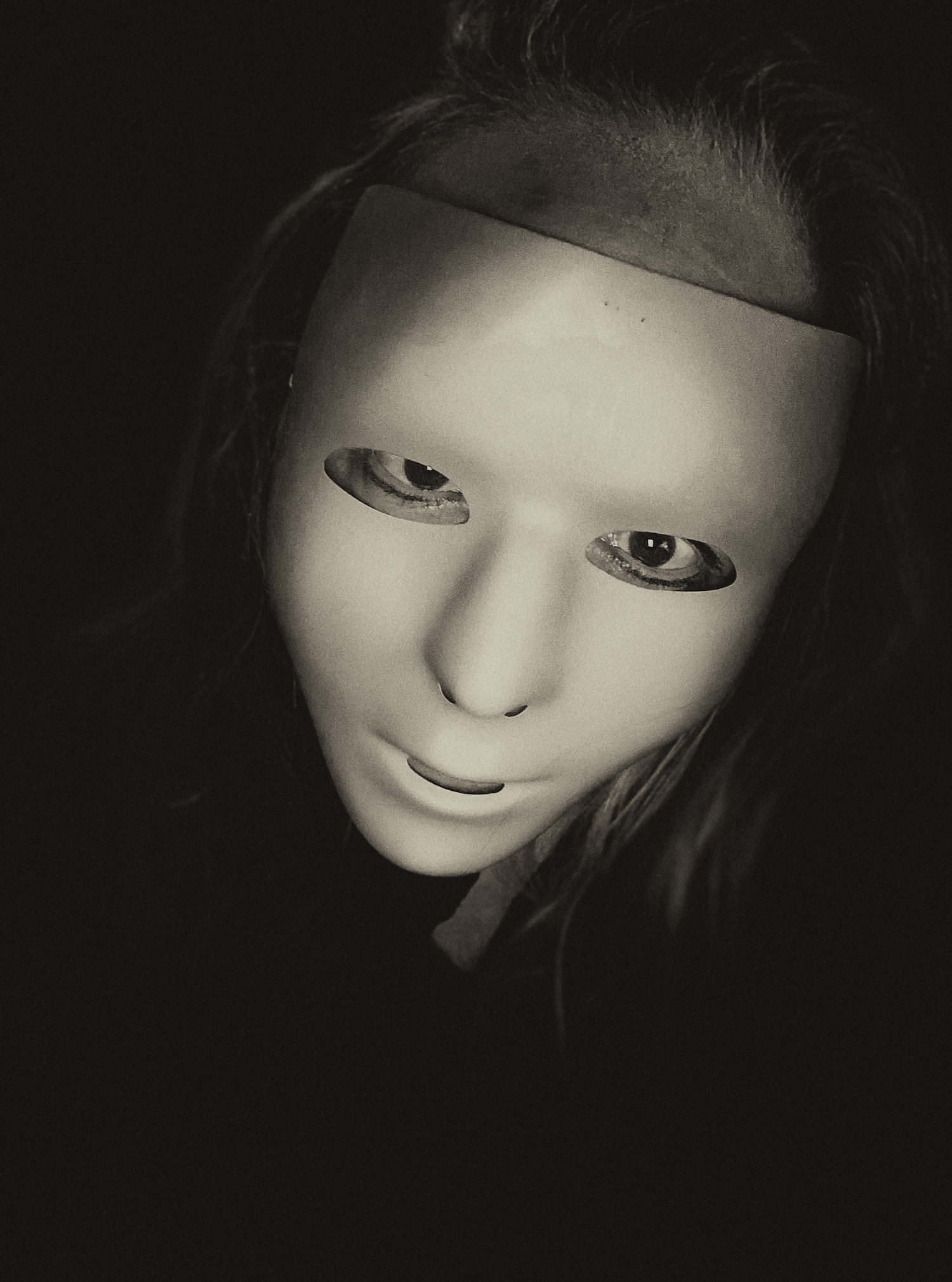
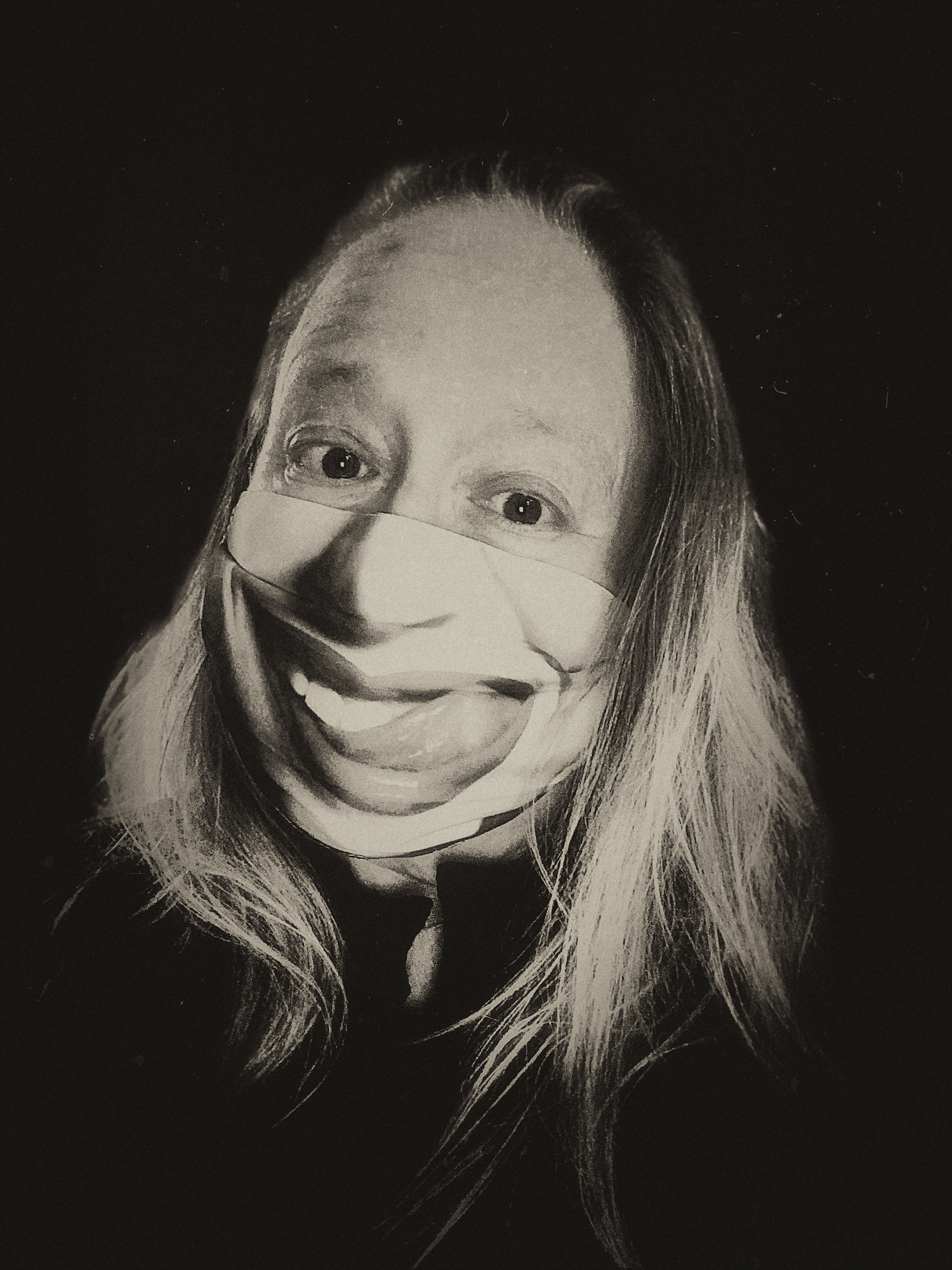
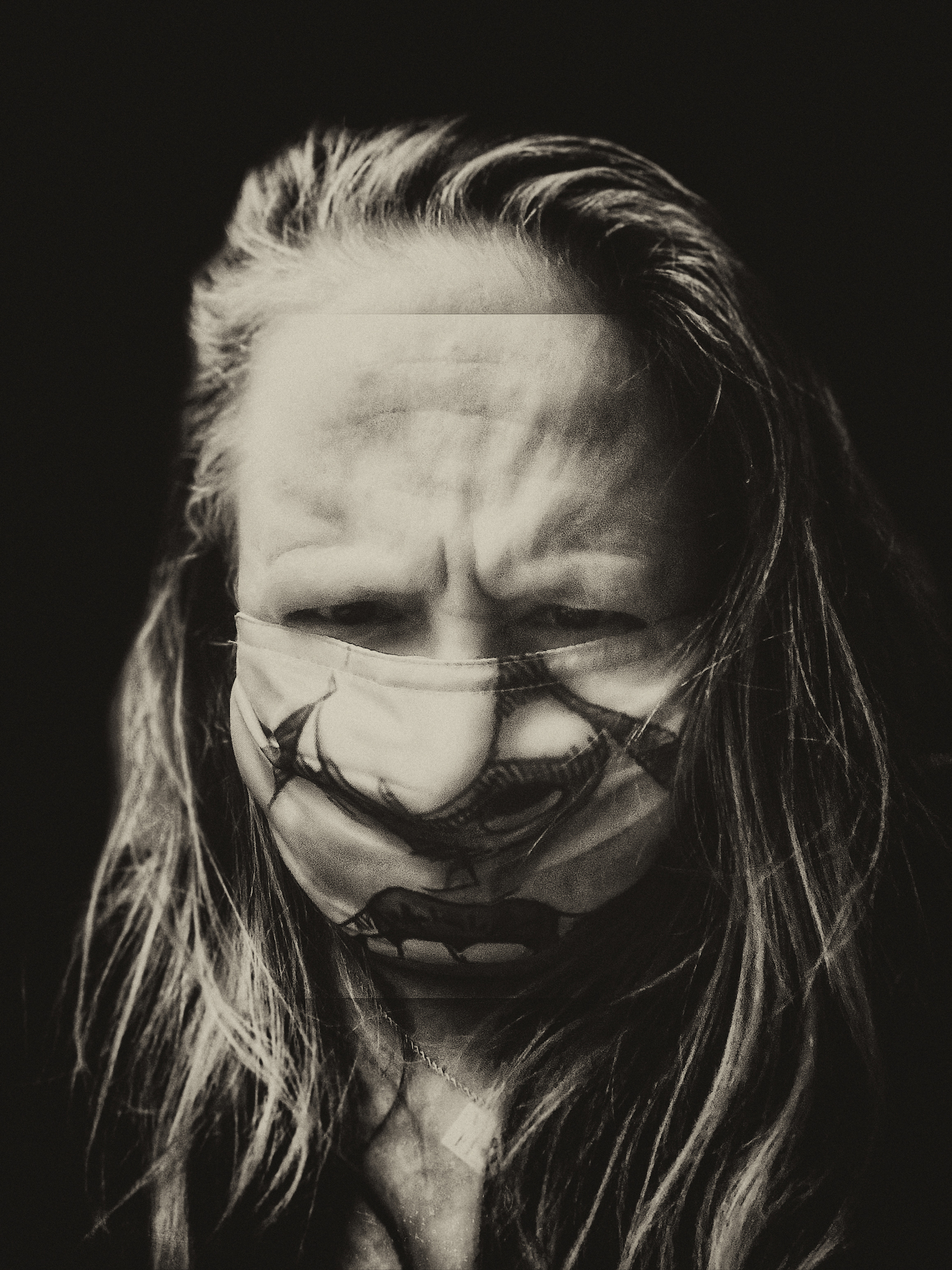
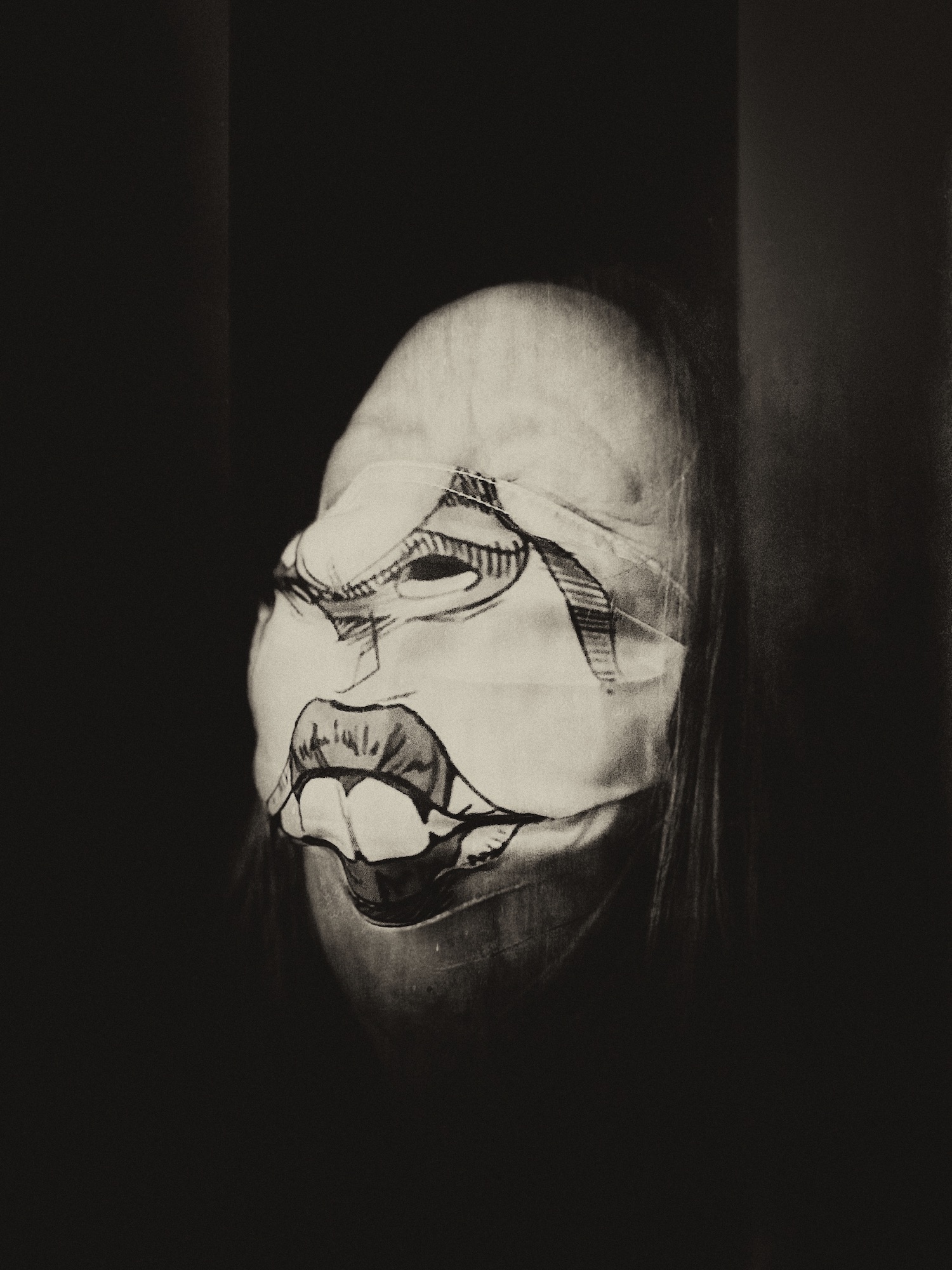
One Response
Comments are closed.